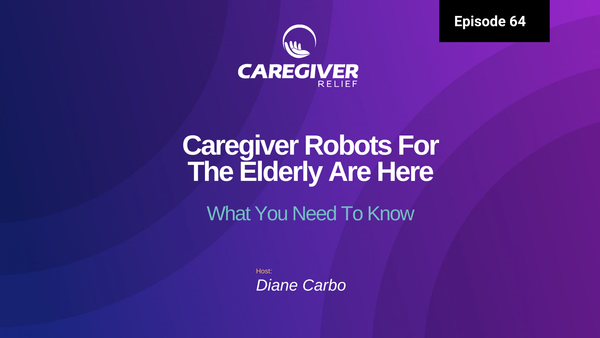How can Older Adults Compensate for Age Related Declines?

Introduction: Age-Related Declines and Compensating Strategies
As we age, there are certain declines in physical and mental functions that can make navigating life more difficult. Many older adults start to experience age-related declines in their mobility, memory, balance, coordination, vision, hearing, and other abilities. Although these changes can be daunting, there are strategies for compensating for age-related declines and managing them in order to maintain a high quality of life.
This guide will provide an overview of age-related declines, as well as provide strategies for compensating for them so that older adults can continue to live their lives to the fullest. We will discuss the importance of exercise and nutrition, as well as specific techniques such as brain training exercises, that can help offset age-related declines.
By the end of this guide, readers should have a good understanding of what age-related declines are, as well as which compensation strategies can help them manage them.
Age-Related Declines in Older Adults
As we age, we can experience a range of age-related declines. These can affect our physical and mental wellbeing, and can take an emotional toll on us as well. This guide is designed to help give you an understanding of the various types of age-related declines, what they are, and how you can better cope with their effects.
The most common type of age-related decline is known as frailty. This is a gradual process of physical weakness and loss of strength, balance and coordination. It can affect older adults in many different ways, including the risk of falls and injuries, difficulty walking or carrying out normal daily activities, and increased susceptibility to illness.
Another type of age-related decline is cognitive impairment. This can lead to memory loss, difficulty concentrating, or a decreased ability to make decisions or solve problems.
The third major type of age-related decline is sensory. This includes changes in vision, hearing, touch and smell. These can lead to difficulties in navigating the environment, as well as increased risk of accidents due to reduced awareness of surroundings.
Finally, depression and anxiety are often associated with age-related declines. The feeling of being socially isolated or abandoned, as well as having limited opportunities for meaningful activities, can all contribute to these feelings.
It’s important to note that while age-related declines are a natural part of getting older, it doesn’t mean that you have to suffer from them. There are various strategies and techniques you can use to help manage and even offset the effects of age-related declines. In the next section, we’ll discuss how you can best cope with age-related declines.
Coping Strategies for Age-Related Declines
As we age, it is natural to experience a decline in energy, strength and agility. As a result, certain activities may become increasingly difficult to do or take longer to complete. Fortunately, there are practical strategies that older adults can use to cope with age-related declines.
Take Time to Rest and Unwind
It is important for older adults to take regular breaks throughout the day with enough time to rest and recharge. Taking a few minutes to sit back, relax, and enjoy some light stretching can help restore energy levels.
Stay Hydrated & Eat Healthy
Staying hydrated and eating healthy meals can go a long way in helping to offset age-related declines. Eating a balanced diet full of healthy nutrients can improve energy levels and reduce fatigue. Water is essential for proper hydration, so older adults should make sure they drink plenty of water throughout the day.
Manage Stress
Older adults should also be mindful of how stress can impact age-related declines. Stress can increase tension in the body, causing fatigue and decreased physical functioning. Making time for relaxation and finding constructive ways to manage stress can help reduce its impact.
Stay Active
Regular exercise can also help offset the effects of age-related declines. Low-impact activities like walking, swimming, or biking can help maintain strength, posture, and flexibility. Staying active can also help improve mood, cognition, and better manage stress.
Exercise and Age-Related Declines
Physical activity is an important factor in managing age-related declines. Regular exercise has been proven to not only improve physical health, but can also have positive effects on mental health. By engaging in regular physical activity, older adults can help to offset the negative effects of age-related declines.
Research has shown that low intensity activities such as walking, stretching and yoga can be very beneficial for people experiencing age-related declines. These activities can help to reduce stiffness and pain while improving flexibility and strength. They can also help to improve balance and coordination, which can help to reduce the risk of falls. Additionally, these low-intensity activities are less likely to lead to joint or muscle injuries than higher intensity activities.
Moderate intensity activities such as cycling, swimming, and jogging are also great options for older adults who want to reduce the effects of age-related declines. These activities can help to improve cardiovascular health and can boost energy levels. They can also help to improve emotional wellbeing by relieving stress and improving sleep quality.
Strength training is also a great option for older adults.It can help to improve muscle strength and bone density, and can also help to reduce the negative effects of age-related declines. Resistance training with weights, bands, or body weight can help to build strength and increase mobility.
In order to ensure that physical activity is safe and beneficial, it is important to discuss goals and concerns with a healthcare provider. A doctor or nurse can provide advice and support to help determine the best course of action when it comes to dealing with age-related declines. It is also important to remember that everyone’s needs are different - what may be beneficial for one person may not be suitable for another.
Nutrition and Age-Related Declines
As we age, our bodies begin to decline in various ways that can have a big impact on our health and well-being. While the exact causes and extent of age-related declines vary from person to person, it is generally accepted that nutrition plays an important role in offsetting these issues. Eating healthy foods that provide essential nutrients and vitamins can help to reduce the effects of age-related declines, or at least slow down their onset.
When it comes to meal planning for older adults, it’s important to focus on foods that are high in fiber, protein, vitamins and minerals. This means including more fresh fruits and vegetables, lean proteins like fish, lean meats, legumes, and whole-grain carbohydrates. It’s also a good idea to limit foods that are high in sugar, fat, and processed ingredients.
It’s beneficial to look for foods that are specifically designed for older adults, as they tend to be higher in nutrients that are important for combating age-related declines. For example, yogurts, dairy products, and other food items designed for seniors may contain additional calcium, potassium, zinc, B-vitamins, and more. Additionally, there may be supplements available that can provide further assistance when it comes to supplying the body with all the necessary vitamins and minerals.
Making sure that older adults get the nutrients they need is an important component of reducing age-related declines. By incorporating more nutrient-rich foods into their diets, older adults can give their bodies the support they need to stay strong and healthy.
Brain Training for Older Adults
As we age, it's common for certain age-related declines to occur. Despite this, there are a variety of methods that can help older adults to compensate for these declines. One of the most effective is brain training.
What is Brain Training?
Brain training, also known as cognitive training, is a form of exercise for the brain. It involves using puzzles, games and other activities to stimulate the mind and help counteract age-related declines. Brain training can help with memory, processing speed, problem solving and more.
How Does It Help?
When an individual completes a task during brain training, they are provided with feedback. This feedback helps to create new neural pathways in the brain that help to strengthen existing mental abilities as well as create new ones.
By engaging in cognitive training, older adults can help to keep their minds sharp and absorb new information quickly and efficiently. Studies have shown that regular brain training can lead to improved cognitive functioning, even in older adults.
Which Activities Can Help?
While there is no one right way to engage in brain training, there are a few activities that have proven to be particularly effective. Examples include crossword puzzles, Sudoku, board games, educational computer programs, video games, and online brain-training programs.
No matter which activity an individual chooses to engage in, the important thing is that they are challenging themselves and having fun while doing it. The more enjoyable the activity, the more likely the individual is to stick with it and see results.
Conclusion
Older adults can experience age-related declines in cognitive functioning, but there are various methods that can help to offset them. Brain training is a great way to help older adults keep their minds sharp and boost their mental capabilities. By engaging in brain training activities that are both challenging and enjoyable, older adults can help to improve and maintain their cognitive health.
You might also like this article:







